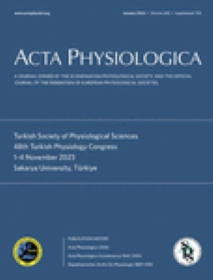Chronic High-Fat Diet Consumption Followed by Lipopolysaccharide Challenge Induces Persistent and Long-Lasting Microglial Priming, Mediates Synaptic Elimination via Complement C1q, and Leads to Behavioral Abnormalities in Male Wistar Rats
Abstract
Aim
Microglia exhibit innate immune memory, altering their responses to subsequent challenges. Consumption of high-fat diet (HFD) triggers innate immune responses, but the characteristics of HFD-induced microglial priming remain unclear. We aim to investigate how HFD-induced microglial priming, followed by a lipopolysaccharide (LPS) challenge, affects brain functions.
Methods
Male Wistar rats were divided into control, unprimed, and primed groups. The primed groups received either a single LPS injection (0.5 mg/kg, intraperitoneally) or HFD consumption for 4–8 weeks. Following the priming phase, all rats (except controls) were subjected to an LPS challenge with a 4- or 8-week interval. After 24 h of LPS challenge, cognition, anxiety-, and depressive-like behaviors were assessed. The brain and hippocampus were collected for further analysis.
Results
Both LPS- and 4-week HFD-primed groups, followed by LPS challenge, exhibited increased peripheral and brain oxidative stress, impaired neurogenesis, disrupted neurotransmitter balance, and altered glycolysis and Krebs cycle substrates. These changes also caused microglial morphological alterations, elevated C1q levels, and synaptic loss, which were associated with anxiety- and depressive-like behaviors, indicating that 4-week HFD consumption has a similar immune priming ability to a single dose of LPS injection. Extending HFD priming to 8 weeks exacerbated microglial and brain inflammation, synaptic loss, and behavioral deficits. Furthermore, prolonging the interval between priming and LPS challenge worsened inflammation and cognitive decline, suggesting the persistent effects of microglial priming.
Conclusions
HFD consumption persistently and time-dependently primes microglia similar to a single LPS injection, influencing immune responses and contributing to behavioral abnormalities.

 求助内容:
求助内容: 应助结果提醒方式:
应助结果提醒方式:


